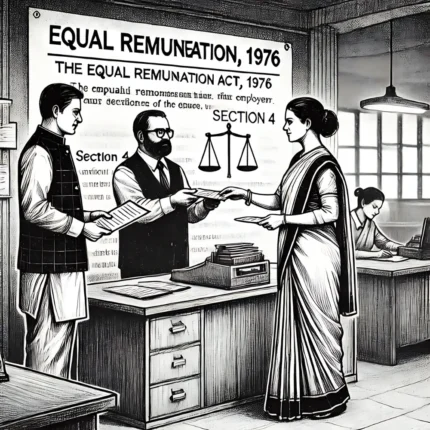What Is The Street Vendors Act, 2014?
Overview
Street vending plays a vital role in urban commerce. Under the Bharatiya Nagarik Suraksha Sanhita (BNSS) and Bharatiya Nyaya Sanhita (BNS), street vendors are protected by laws that regulate their operations while ensuring public order and convenience. These laws offer a balance between urban development and the livelihood of vendors.
Regulation under BNSS
- Vendors must operate in designated areas to ensure urban planning and convenience.
- The law protects vendors from unlawful eviction and ensures compliance with municipal guidelines.
- Measures are in place to maintain hygiene, ensure pedestrian accessibility, and manage traffic in vending zones.
Description
Legal Provisions under BNS
- Provides legal provisions for handling conflicts, disputes, and offenses related to street vending.
- Establishes grievance redressal mechanisms to prevent harassment by authorities.
- Includes penal provisions for unauthorized vending or non-compliance with regulations.
Promoting Inclusive Urban Economy
By recognizing the economic role of street vendors, the BNS and BNSS contribute to creating an inclusive urban economy, ensuring legal protection and promoting sustainable vending practices.
Key Provisions under BNS and BNSS for Street Vendors
- Regulatory Framework: The Bharatiya Nagarik Suraksha Sanhita (BNSS) and Bharatiya Nyaya Sanhita (BNS) outline legal provisions ensuring the regulation and protection of street vendors.
- Vending Zones & Licensing: Municipal bodies must designate vending zones, issue licenses, and conduct periodic surveys to maintain urban balance.
- Transparent Allocation: If vending spaces are limited, fair distribution is ensured through a structured lottery system.
- Protection of Vendors’ Rights: Licensed vendors receive legal protection from forced eviction and harassment.
- Succession & Continuity: In case of a vendor’s demise or disability, designated family members can inherit vending rights.
- Relocation & Compensation: Evictions are prohibited unless relocation is unavoidable, in which case vendors receive rehabilitation assistance.
- Urban Planning & Inclusion: Development plans must integrate vending zones to support livelihood sustainability.
- Dispute Resolution: Independent redressal bodies handle grievances and ensure fair treatment.
- Government Assistance: Vendors gain access to financial aid, business development programs, and security schemes.
- Legal Protections: Street vendors are safeguarded from unjust penalties, ensuring their right to trade under regulated norms.
Reviews (0)
Be the first to review “What Is The Street Vendors Act, 2014?” Cancel reply









Reviews
There are no reviews yet.